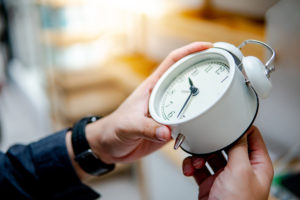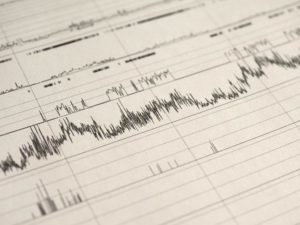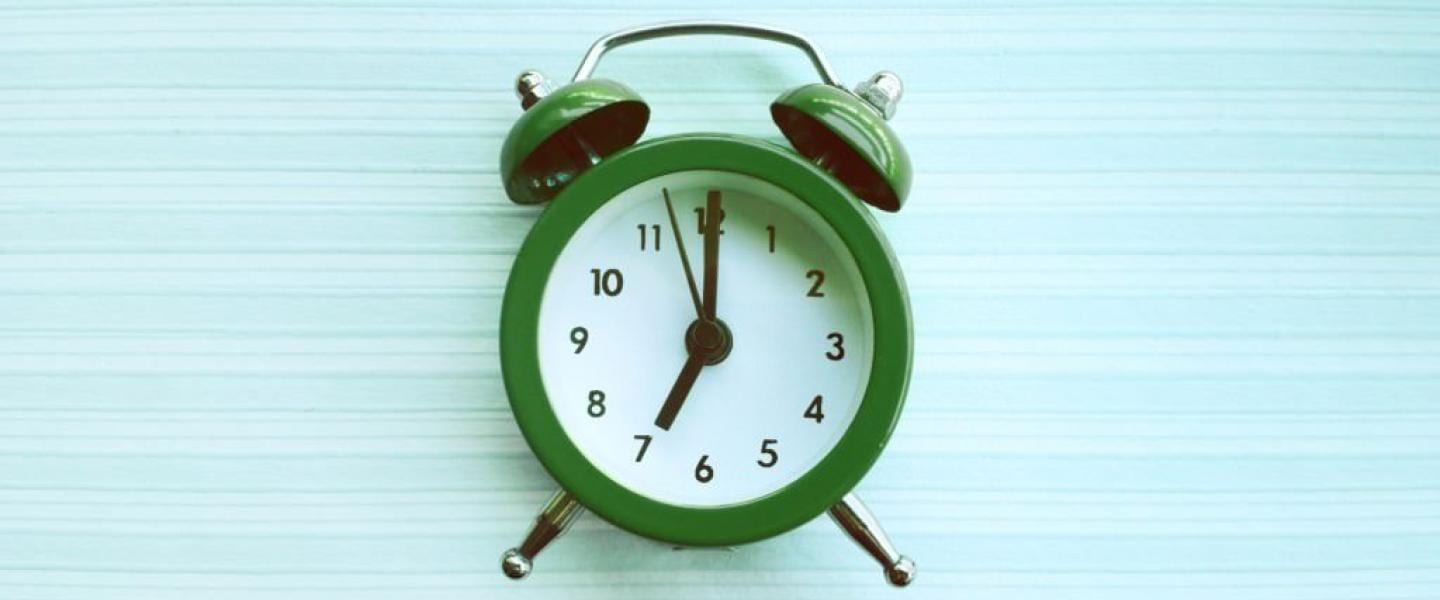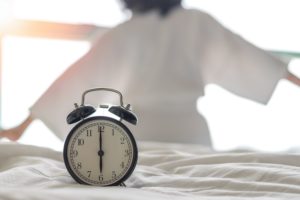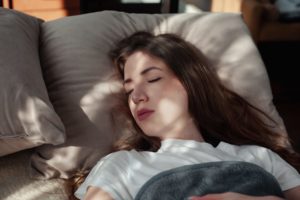When you buy through our links, we may earn a commission. Products or services may be offered by an affiliated entity. Learn more.
Irregular Sleep-Wake Rhythm Disorder
- What Is Irregular Sleep-Wake Rhythm Disorder?
- Symptoms of Irregular Sleep-Wake Rhythm Disorder
- What Causes Irregular Sleep-Wake Rhythm Disorder?
- Risk Factors
- Diagnosis
- Treatment for Irregular Sleep-Wake Rhythm Disorder
- Sleep Hygiene Tips for Sleeping With Irregular Sleep-Wake Rhythm Disorder
- When To See A Doctor
Sleep is essential for physical, mental, and emotional health. But some people have sleep disorders that create a mismatch between their sleep-wake pattern and the natural day and night cycle, called circadian rhythm sleep disorders. Irregular sleep-wake rhythm disorder is one type of circadian rhythm sleep disorder that disrupts sleep, making it challenging to sleep and stay awake at certain times.
People with disrupted circadian rhythms often experience daytime sleepiness and difficulty sleeping. The body’s inability to synchronize the sleep-wake cycle to their environment can cause sleep deprivation, which can lead to depression, impaired work performance, increased risk of falls and accidents, reduced alertness, impaired memory, and increase the risk of other health conditions.
Treatments are available for irregular sleep-wake rhythm disorder, including changes to lifestyle and sleep habits.
What Is Irregular Sleep-Wake Rhythm Disorder?
Irregular sleep-wake rhythm disorder as the lack of a defined sleep-wake circadian rhythm. The circadian rhythm is an internal body clock that regulates various physical changes, such as sleep and wakefulness, over each day and night. People with irregular sleep-wake rhythm disorder do not have a defined sleep pattern or schedule and often experience random sleep and wake periods during a 24-hour period.
The sleep-wake patterns of a person with irregular sleep-wake rhythm disorder can vary from day to day. People with this sleep disorder commonly have trouble sleeping at night, experience excessive daytime sleepiness, and take multiple sporadic naps that typically last two to four hours.
Irregular Sleep-Wake Rhythm Disorder vs. Non-24-Hour Sleep-Wake Disorder
Although irregular sleep-wake rhythm disorder and non-24-hour sleep-wake disorder are both circadian rhythm disorders, there are key differences between them. Irregular sleep-wake disorder is characterized by a random pattern of sleep and wakefulness across each 24-hour period that varies from one day to the next.
In contrast, non-24-hour sleep-wake disorder involves delayed sleep and periods of insomnia and excessive sleepiness. These symptoms occur because the body’s internal circadian clock is not responding to light and darkness. Limited light exposure often causes non-24-hour sleep-wake disorder.
Symptoms of Irregular Sleep-Wake Rhythm Disorder
Symptoms of irregular sleep-wake rhythm disorder include:
- Difficulty falling asleep at night
- Multiple nighttime wakings
- Non-rejuvenating sleep
- Excessive daytime sleepiness
- Taking multiple naps during the day
What Causes Irregular Sleep-Wake Rhythm Disorder?
There are limited findings on the biological mechanisms that cause irregular sleep-wake rhythm disorder. This disorder likely has multiple causes, including brain or bodily abnormalities that affect the circadian rhythm. Data suggests irregular sleep-wake rhythm disorder is very rare, with a higher prevalence among people with neurodegenerative conditions, developmental disorders, and medical issues that cause brain dysfunction.
Irregular sleep-wake rhythm disorder may also be caused by a person’s environment and lifestyle. Limited exposure to factors that affect circadian rhythm, like daytime light, exercise, and social activity, may make the disorder more likely.
Risk Factors
Although irregular sleep-wake rhythm disorder is associated with aging-related diseases, this rare disorder can develop at any age. Lack of physical or social activity, as well as a lack of light exposure during the day or too much light exposure at night are risk factors. Additionally, certain medical and neurological conditions increase the risk of developing irregular sleep-wake rhythm disorder. Risk factors include:
- Dementia
- Parkinson’s disease
- Huntington’s disease
- Autism
- Childhood developmental disorders
- Traumatic brain injury
- Chronic fatigue syndrome
- Brain tumor
Diagnosis
Health care providers diagnose irregular sleep-wake rhythm disorder using sleep logs or actigraphy monitoring. Sleep logs, also called sleep diaries, are daily self-reported records detailing a person’s sleep and wake schedule. Actigraphy monitors sleep-wake information by collecting movement data through a wearable device, usually a motion-detecting watch-shaped device worn on the wrist.
A trained health care provider analyzes sleep data from sleep logs or actigraphy to identify whether there are irregularities. Both methods monitor 24-hour sleep patterns for seven to 14 days to identify whether a person’s circadian clock has a defined or undefined rhythm.
When irregular sleep-wake rhythm disorder is suspected, a healthcare provider may also order blood work, imaging, and/or screen for conditions like dementia. Monitoring 24-hour cycle changes to body temperature, cortisol levels, and melatonin can also be used to identify an undefined circadian rhythm.
Treatment for Irregular Sleep-Wake Rhythm Disorder
Multiple treatment options for irregular sleep-wake rhythm disorder are available. These options aim to align the body’s sleep schedule with the light and dark schedule of the environment.
- Bright light therapy: During bright light therapy, a patient is exposed to light that mimics sunlight. Each morning, they sit in front of a lightbox intended to adjust the body’s melatonin production, reducing daytime sleepiness and helping them fall asleep earlier.
- Sleep hygiene: Improving sleep routines, habits, lifestyle, and diets can help manage the symptoms of circadian rhythm disorder.
- Medication: Certain prescriptions and over-the-counter supplements may help manage nighttime insomnia and daytime sleeping. For example, melatonin supplements can help improve nighttime sleeping for some people. However, these supplements may not be right for everyone, so speak with a doctor before taking them.
Sleep Hygiene Tips for Sleeping With Irregular Sleep-Wake Rhythm Disorder
Changing lifestyle and sleep habits can reset the body’s sleep-wake cycle and help with managing irregular sleep-wake rhythm disorder symptoms.
- Keep a consistent sleep schedule: Try to maintain a regular sleep-wake schedule by keeping the same bedtime and wake time on weekdays and weekends. Establishing a relaxing bedtime routine can also help improve sleep quality at night.
- Restrict time spent in bed: It is best to avoid lying in bed trying unsuccessfully to sleep. If unable to sleep after 20 minutes, get out of bed and do something soothing before trying to sleep again.
- Manage light exposure: Increasing exposure to daylight can help prevent daytime sleepiness. Conversely, limiting nighttime exposure to artificial light and blue light from electronic screens can reduce the potential for sleep problems.
- Limit alcohol use: Alcohol consumption can disrupt sleep, increasing nighttime awakenings and daytime sleepiness.
- Avoid daytime napping: Taking multiple naps throughout the day, especially late- afternoon, can fragment nighttime sleep.
- Restrict caffeine: Drinking coffee or caffeinated drinks can help prevent daytime sleepiness. But consuming too much caffeine or drinking it late in the afternoon or even eight hours before bedtime may disrupt sleep and cause insomnia symptoms.
- Prepare the sleep environment: A bedroom that is dark, quiet, and cool may help facilitate sleep.
When To See A Doctor
Speak with a doctor if you are not getting the recommended quantity of sleep needed each night or if you are experiencing impaired daytime functioning. These are symptoms of irregular sleep-wake disorder, as well as other sleep disorders.
Sleep loss from irregular sleep-wake disorder can cause sleep deprivation, which can increase the risk of accidents and health problems. Sleep deprivation is associated with adverse health conditions such as heart disease, high blood pressure, depression, obesity, and diabetes. A doctor can recommend treatment options that help manage sleep issues like irregular sleep-wake rhythm disorder.

Still have questions? Ask our community!
Join our Sleep Care Community — a trusted hub of sleep health professionals, product specialists, and people just like you. Whether you need expert sleep advice for your insomnia or you’re searching for the perfect mattress, we’ve got you covered. Get personalized guidance from the experts who know sleep best.
References
6 Sources
-
A.D.A.M. Medical Encyclopedia. (2020, June 2). Irregular sleep-wake syndrome. MedlinePlus., Retrieved May 4, 2022 from
https://medlineplus.gov/ency/article/000806.htm -
Schwab, R. J. (2020, June). Approach to the patient with a sleep or wakefulness disorder. Merck Manual Professional Version., Retrieved May 4, 2022, from
https://www.merckmanuals.com/professional/neurologic-disorders/sleep-and-wakefulness-disorders/approach-to-the-patient-with-a-sleep-or-wakefulness-disorder -
National Heart, Lung, and Blood Institute. (2022, March 24). Circadian rhythm disorders: Diagnosis., Retrieved May 4, 2022, from
https://www.nhlbi.nih.gov/health/circadian-rhythm-disorders/diagnosis -
National Heart, Lung, and Blood Institute. (2022, March 24). Circadian rhythm disorders: Treatment., Retrieved May 4, 2022, from
https://www.nhlbi.nih.gov/health/circadian-rhythm-disorders/treatment -
MedlinePlus: National Library of Medicine (US). (2015, April 2). Caffeine. MedlinePlus., Retrieved May 11, 2022 from
https://medlineplus.gov/caffeine.html -
National Heart, Lung, and Blood Institute. (2022, March 24). Sleep deprivation and deficiency: What are sleep deprivation and deficiency?, Retrieved May 4, 2022, from
https://www.nhlbi.nih.gov/health/sleep-deprivation




